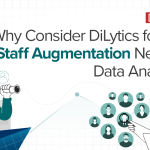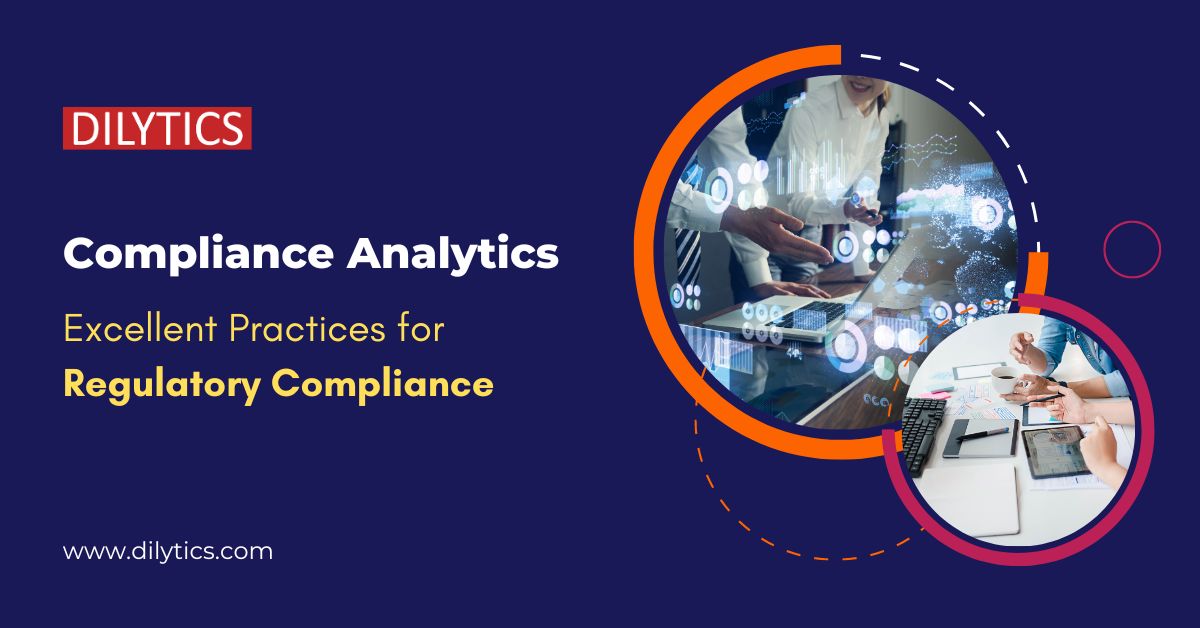In the pharmaceutical and food industries, regulatory compliance is a critical aspect of maintaining product quality and safety. These industries face numerous regulations and guidelines from government bodies, and it can be challenging to ensure compliance across all areas. Compliance analytics solutions offer a powerful way to streamline compliance efforts, reduce risks, and improve overall operations.
Table of Contents
Compliance analytics solutions leverage data analytics and machine learning to automate compliance processes and identify potential risks. These solutions collect data from various sources such as manufacturing processes, supply chains, and quality control procedures. This data is then analyzed to identify patterns and potential issues.
In this blog, we will explore how compliance analytics solutions help the pharma and food industry to adhere to the regulations.
Regulatory challenges in the Pharma industry
Pharmaceutical companies are subject to stringent regulations to ensure the safety and efficacy of drugs. The Food and Drug Administration (FDA) regulates the quality of pharmaceuticals very carefully.
Per FDA, it has approved only 37 novel drugs in 2022, the fewest to pass regulatory scrutiny since 2016. This is a drop from the highs of the past 5 years and brings the rolling 5-year average down to 49 drugs per year.
Regulatory bodies are introducing pharmaceutical compliance programs due to various factors, including:
- The increasing pressure on the healthcare and pharmaceutical sectors to prioritize patient safety and safeguard public health.
- The surging number of counterfeit products available in the market.
- The escalating costs of drug development, testing, and distribution.
- The necessity to promote compliance with relevant laws within the pharmaceutical industry.
- The requirement to uphold uniform quality standards across diverse regions and markets.
Why is GxP important?
Compliance analytics solutions help pharma companies to comply with GxP regulations such as Good Manufacturing Practice (GMP), Good Clinical Practice (GCP), Good laboratory practice (GLP), and Good Distribution Practice (GDP).
The guidelines mainly focus on the following areas:
- Traceability – ensuring that the development history of the product can be reverse-engineered.
- Accountability – Identifying the contribution of every individual involved in the development process.
- Data Integrity – Ensuring the reliability of data.
Good Manufacturing Practices (GMP) – GMP are the guidelines recommended by agencies for the authorization and control of manufacturing of products such as drugs, medical devices, active pharmaceutical ingredients (APIs), etc.
Good Clinical Practices (GCP) – GCP are international quality standards defined by the International Conference on Harmonization (ICH) that state the clinical trial regulations for the products that require testing on human subjects.
Good Laboratory Practices (GLP) – These are the standards set by the FDA for non-clinical laboratory tests and studies conducted for assessing the safety and efficacy of the product. GLPs are a set of standards that define the framework for a non-clinical study and state how they should be performed, evaluated, reported, etc.
Good Distribution Practices (GDP) – Compliance with GDP for pharmaceutical products ensure that:
- medicines in the supply chain are authorized and are maintained in the right conditions at all times, including during transportation; contamination by or of other products is avoided;
- an adequate turnover of stored medicines takes place;
- the right products reach the right recipient within a satisfactory time period.
These regulations enable pharma companies to monitor and detect any non-compliance issues such as the use of expired raw materials, deviations in manufacturing processes, clinical trial violations, data integrity violations and incomplete documentation. It also helps to identify patterns of non-compliance across multiple sites, enabling companies to take corrective actions to prevent future non-compliance incidents.
Furthermore, compliance analytics solutions can help pharma companies to comply with regulations related to adverse event reporting.
Adverse event reporting is a regulatory requirement that obliges pharma companies to report any adverse events related to their products to regulatory agencies such as the FDA.
Importance of reporting adverse events: The adverse event reporting data can address the study participant safety issues. The protocol should mention the methods to monitor, report, and handle adverse events. It is important to understand each adverse event, its relevance, and its significance to the study drug or device and the study. The recording and reporting of these events lead to improved patient safety.
Compliance analytics solutions can help pharma companies to identify adverse events quickly and efficiently, enabling them to take corrective actions and comply with regulations.
DiLytics Compliance Analytics solution provides insight into Quality Control data at the highest and most detailed level in FDA-regulated industries. Below are the various subject areas that are part of the out-of-the-box Compliance Insight Solution:
- OOS/OOT – Out of Specification/Out of Trend
- Complaints
- Deviations
- CAPA – Corrective and Preventive Action
Food Safety Regulations in Food Manufacturing
According to the Centers for Disease Control and Prevention (CDC), 48 million people get sick, 128,000 are hospitalized, and 3,000 die each year from foodborne diseases in the US alone. This highlights the importance of stringent food safety regulations in the food manufacturing industry. In 2018, the US Food and Drug Administration (FDA) announced the New Era of Smarter Food Safety initiative, which aims to modernize food safety practices and prioritize the prevention of foodborne illnesses.
So, food companies are subject to regulations to ensure the safety and quality of their products. Compliance analytics solutions help food companies to comply with regulations such as the Food Safety Modernization Act (FSMA), Hazard Analysis and Critical Control Points (HACCP), FSSC 22000, and ISO 22000.
In food and beverage, the FDA’s Food Safety Modernization Act (FSMA) expects full transparency of how products are made and where they are at all times in the distribution and consumption layer — and labels must support that effort as well.
Hazard Analysis and Critical Control Points (HACCP) is a management system in which risk-based preventive controls are conducted to avoid the contamination of biological, chemical, and physical hazards in the final food product. HACCP regulations include the Safe Food for Canadians Act (SFCA) and the FDA Food Safety Modernization Act (FSMA).
FSSC 22000 is proof of a comprehensive management system for food and food safety. The independent standard is globally recognized in international trade and the processing industry. Its accreditation by the Global GFSI, which has the world’s largest collaboration for food safety, reinforces the validity of the standard. The certification can be applied to any company along the entire food supply chain from manufacturing, processing, and packaging, to even feed manufacturing. The standard also covers the Hazard Analysis Critical Control Points (HACCP)
ISO 22000 is based on HACCP guidelines and a globally accepted standard that forms the basis for an internationally valid ISO food safety certificate and is aimed at the entire agri-food chain. ISO 22000 provides a layer of reassurance within the global food supply chain, helping products cross borders and bringing people food that they can trust.
These compliance standards enable food companies to monitor their food safety programs, identify potential hazards, and take corrective actions to prevent contamination and other food safety issues.
Here are some ways compliance analytics solutions help the pharma and food industry:
- Improving product quality: Compliance analytics solutions help in monitoring the manufacturing processes and analyzing the data generated by these processes to identify potential issues. This helps in quality control and assurance to ensure that the final product meets regulatory standards. These solutions help in identifying potential product failures or contamination issues before they occur, reducing the risks of product recalls, and ensuring product quality.
- Enhancing supply chain transparency: Compliance analytics solutions help in tracking the supply chain, ensuring that all suppliers meet regulatory requirements. They can also monitor suppliers for potential risks, such as non-compliance with environmental or labor regulations. This can help in preventing any disruptions to the supply chain, reduce the risks of product shortages, and ensure that the final product is safe and meets regulatory standards.
- Meeting regulatory compliance: Pharmaceutical and food companies are required to comply with a variety of regulatory requirements from government agencies. Compliance analytics solutions can help in identifying and tracking these requirements, ensuring that the company is in compliance. These solutions can also help in identifying any potential risks or issues, allowing companies to address them proactively.
- Increasing operational efficiency: Compliance analytics solutions can help food and pharmaceutical companies optimize their operations by identifying inefficiencies and opportunities for improvement. For example, these solutions can help companies streamline their manufacturing processes or improve their inventory management practices.
- Cost reduction: Compliance analytics solutions can help in reducing the costs associated with compliance efforts. By automating compliance processes and identifying potential issues, companies can reduce the need for manual monitoring, testing, and inspections. This can lead to cost savings and improve overall efficiency.
- Ensure accurate product labeling and packaging: In order to sell your food products, you must comply with the FDA’s packaging law FPLA (The Fair Packaging and Labeling Act). The FDA regulates most packaged foods sold and has specific requirements for what elements a package must contain (e.g., a Nutrition Facts panel, ingredient statement, etc.). FDA indicates that food labeling is required for most prepared foods, such as bread, cereals, canned and frozen foods, snacks, desserts, drinks, etc.
Compliance analytics can play a crucial role in ensuring that packaging and labeling in the food industry adhere to regulatory requirements and standards
DiLytics implemented a Compliance Analytics solution for a Biotechnology Company that allowed the client to quickly view compliance levels across all of its sites and products and made it easier for the client to comply with industry best practices and Food and Drug Administration Safety and Innovation Act (FDASIA) reporting requirements. Click here for the case study.
In conclusion, compliance analytics solutions provide significant benefits to the pharma and food industries. These solutions help organizations to comply with regulations, mitigate risks, and improve overall product quality, processes, and safety. By leveraging advanced analytics techniques, compliance analytics solutions enable organizations to analyze large amounts of data, identify potential compliance issues, and take corrective actions to prevent future incidents.





